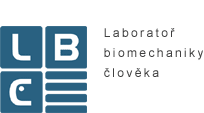
Study
List of study programs
Bachelor study
Bachelor of Mechanical Engineering - specialization Biomechanics
Master study
Applied Science in Mechanical Engineering- specialization Biomechanics
Doctoral study
Applied Science in Mechanical Engineering

Bachelor of Mechanical Engineering - specialization Biomechanics
Applied Science in Mechanical Engineering- specialization Biomechanics
Applied Science in Mechanical Engineering